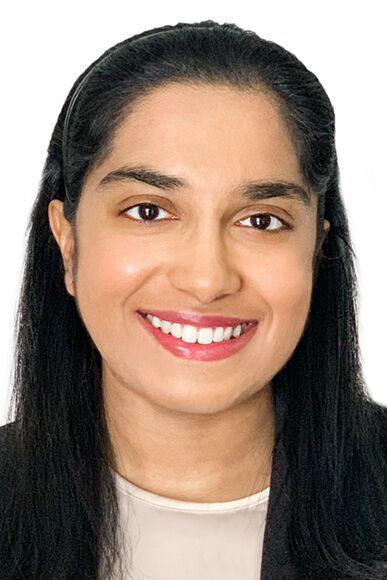- Fellow Highlights
Looking Back at the Fellowship: MD/MBA Student Pooja Chandrashekar
2021 Paul & Daisy Soros Fellow Pooja Chandrashekar is currently an MD/MBA student at Harvard Medical School and Harvard Business School. Her work focuses on improving healthcare delivery for underserved populations.
Prior to graduate school, Pooja worked at CareMore Health and SCAN Health Plan where she developed recommendations for improving the care of frail and vulnerable seniors through telemedicine and home-based care. She has published more than a dozen papers in peer-reviewed journals and co-authored an upcoming book chapter on reforming the US healthcare system for older adults. Pooja also serves as the managing assistant editor for Healthcare: The Journal of Delivery Science and Innovation, a peer-reviewed medical journal. Most recently, she started the COVID-19 Health Literacy Project to create and translate COVID-19 information into 40+ languages for non-English speaking patients sidelined during the pandemic. For her contributions and passion for advancing healthcare, she was named to the 2021 Forbes 30 Under 30 Healthcare list.
Pooja is also an ardent advocate for education equity. She is the founder and CEO of ProjectCSGIRLS, an international nonprofit dedicated to encouraging middle school girls in STEM, for which she received the Harvard Medical School Dean’s Community Service Award. To date, the organization has reached over 15,000 girls in 12 countries. Pooja speaks widely about the importance of diversity in science and has given three TEDx talks on the subject. Pooja aspires to pursue a career as a physician and leader dedicated to building a more equitable healthcare system.
We caught up with Pooja about what’s next and what the Fellowship has meant to her:
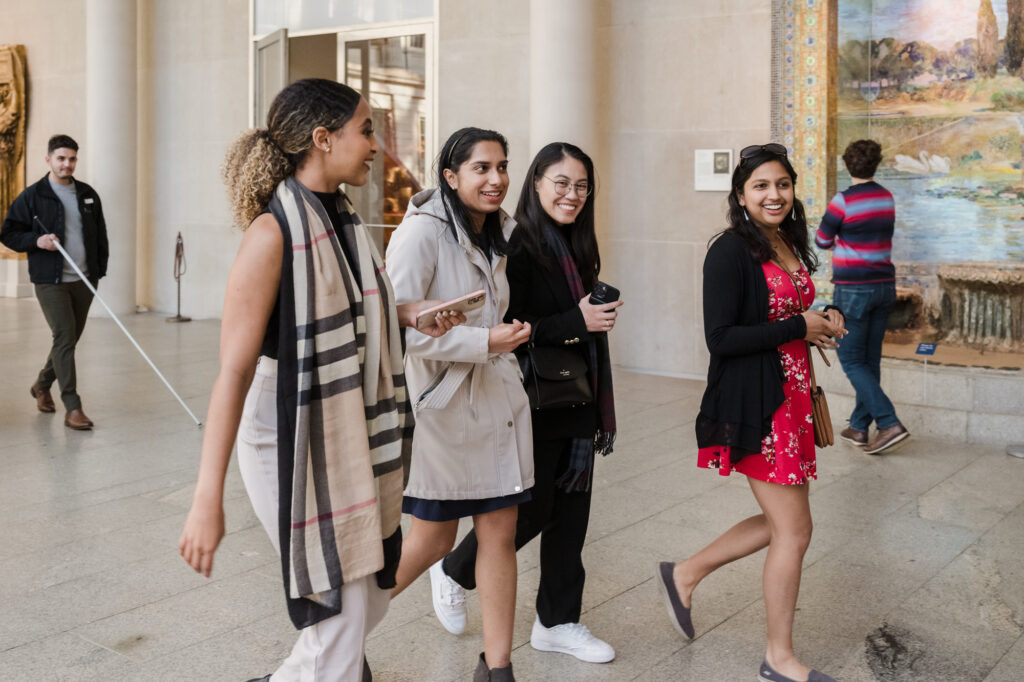
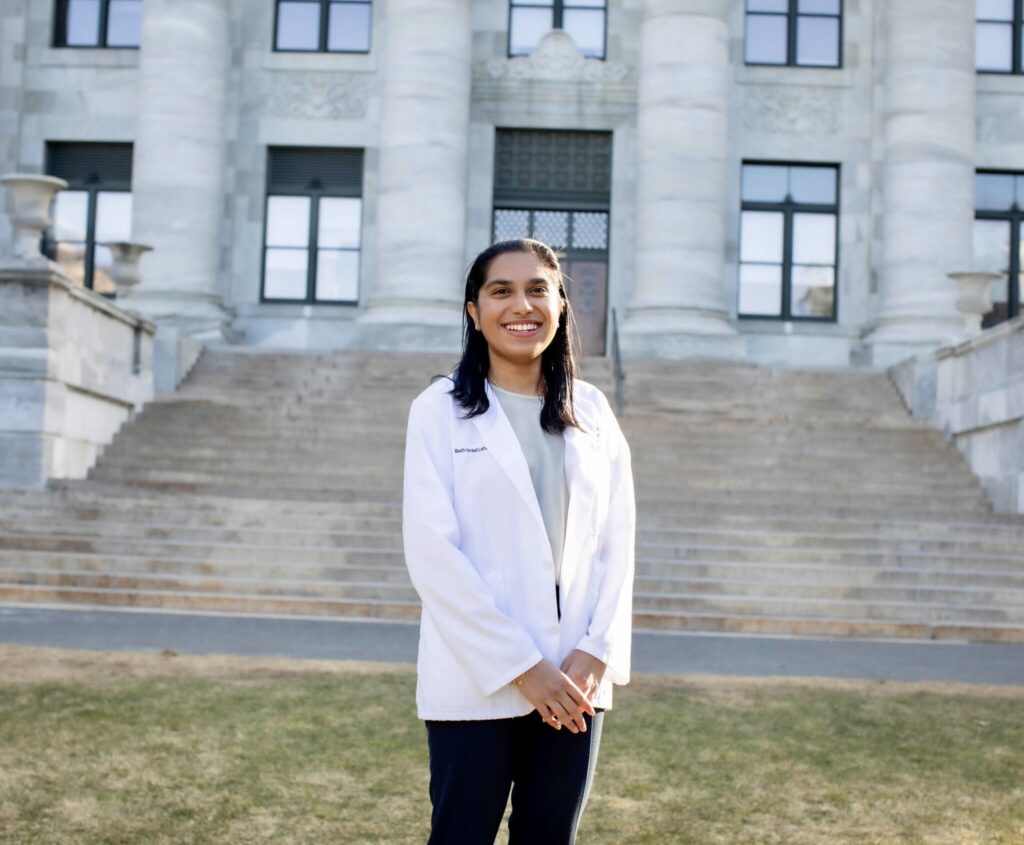
What’s the next step for you in your studies?
I am starting the fifth and final year of my MD/MBA at Harvard Medical School and Harvard Business School. After graduating next spring, I will be starting residency in internal medicine-primary care. Before I dive into residency and spend three years training to become the best primary care physician I can be, I’m spending the next year learning as much as I can about how to improve healthcare delivery for underserved populations. Following residency, I hope to practice primary care in the safety net, doctoring for resource-poor populations and then translating those experiences into leadership and entrepreneurship around building better models of care for low-income patients with complex medical and social needs.
Can you tell us more about your graduate studies—what questions were are you pursuing?
I’m pursuing a joint medical and business degree. My reasons for doing an MD/MBA go back to college, where I studied biomedical engineering and worked on building low-cost medical devices to increase access to care (a long-standing passion that stems from my own parents’ experiences navigating the US healthcare system). From these experiences, I realized that technology isn’t enough—we first need structural change to improve how care is delivered and financed for high-need, high-cost populations. This is the question I’ve been focused on for the past few years: how can we design and implement new models of care delivery that meaningfully advance health equity?
Throughout my graduate studies, I have tried to prioritize action alongside scholarship. I firmly believe that research and discovery has to go hand-in-hand with the difficult work of creating change. For me, this has meant training health professions students and faculty on responding to patients who exhibit biased or discriminatory behavior, launching and scaling the Community Health Literacy Project to ensure patients with limited English proficiency have access to critical health information, and building Reentry Care to connect individuals leaving incarceration with community-based healthcare services.
Why did you apply to The Paul & Daisy Soros Fellowships for New Americans?
I applied to the PD Soros Fellowship because I knew several Fellows and alumni who spoke so highly of their experience and the community they found through the Fellowship. This couldn’t have been more true. Of course, the Fellowship comes with so many tremendous benefits, including the funding for graduate school, but the community is by far the most important part. It’s amazing to be part of a group with such diverse backgrounds and career interests but who relate to one another on so many different (often unexpected) levels.
Do you have any favorite memories from the past two years as a Paul & Daisy Soros Fellow?
I’ve had so many wonderful memories from being part of this tight-knit and inspiring community, but my absolute favorite was from our first Fall Conference. Each year, the new Fellows take part in a community-building exercise called “Beyond My Resume” and the intent is to break the ice, share our New American stories, and discover the hopes, values, and fears that connect us across vastly different cultures and identities. Though there is a moderator, there is no real prompt and it turned into this magical three-hour session of finding the community that we could’ve never imagined existed, sharing parts of ourselves and our stories that we never expected to be able to share with total strangers, and feeling so at home with one another. There were tears, laughter, joy, and most importantly, there was so much acceptance and love. We all walked away from that experience knowing that we had found life-long friends in one another.
What advice would you give to someone who is thinking of applying to The Paul & Daisy Soros Fellowships for New Americans?
Be vulnerable! My long-time mentor (Dr. Sachin Jain, also a PD Soros Fellow) gave me this advice when I was applying and I can’t emphasize how important it was—not only during the application process, but also during the Fellowship experience. Like many children of immigrants, vulnerability doesn’t come naturally to me. However, each time I’ve stepped out of my comfort zone, it has paid off in leaps and bounds. Separately, during the application process I would highly recommend speaking with your parents about their childhood and migration stories, if relevant, because more often than not, their stories are the genesis of your own.∎
Keep Exploring
-
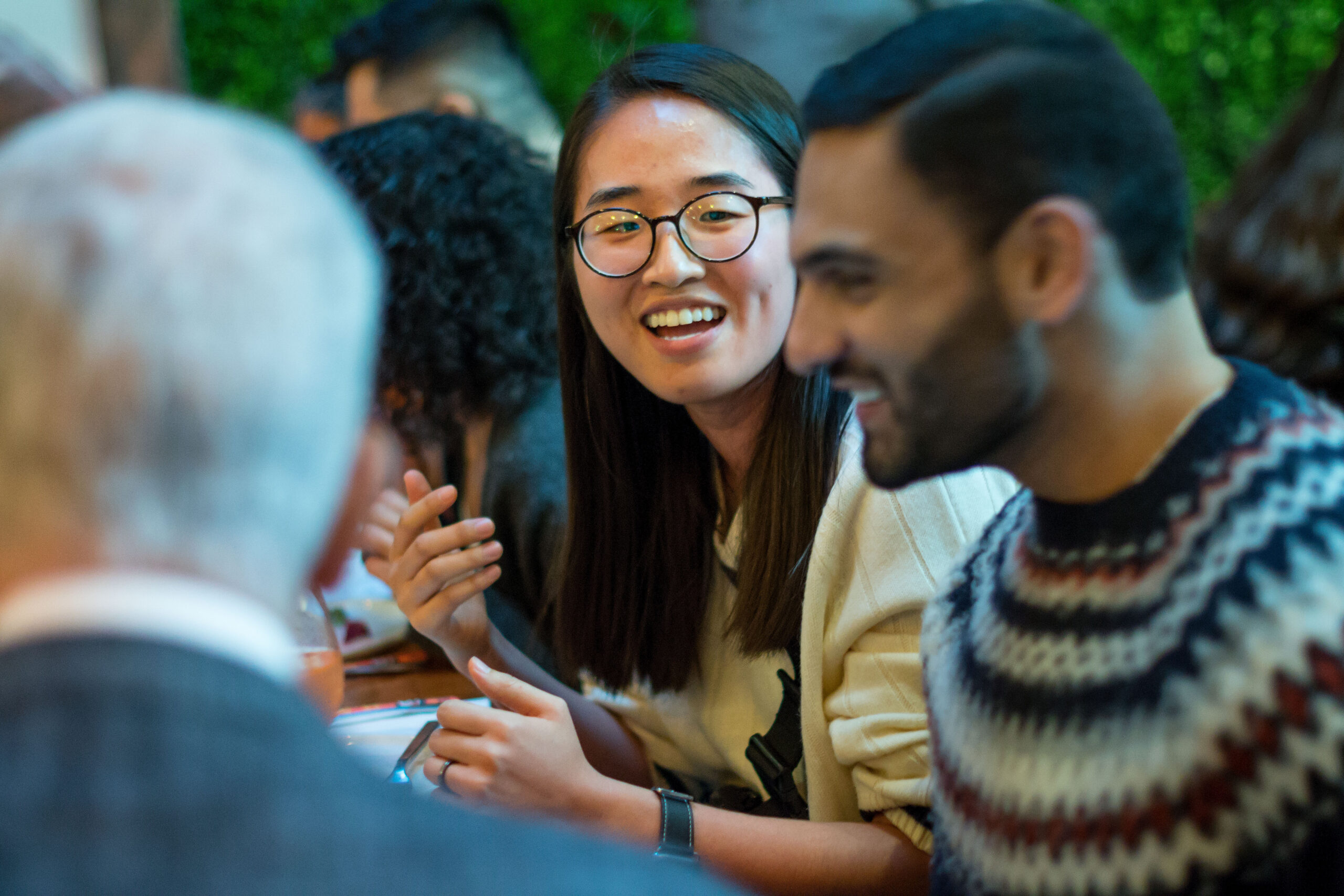 Read more: Kathy Ku Steps into Leadership as PDSFA Chair
Read more: Kathy Ku Steps into Leadership as PDSFA Chair- Board of Directors
- Fellowship News
Kathy Ku Steps into Leadership as PDSFA Chair
-
 Read more: Q&A with MD/PhD Student Silvia Huerta Lopez
Read more: Q&A with MD/PhD Student Silvia Huerta LopezQ&A with MD/PhD Student Silvia Huerta Lopez
-
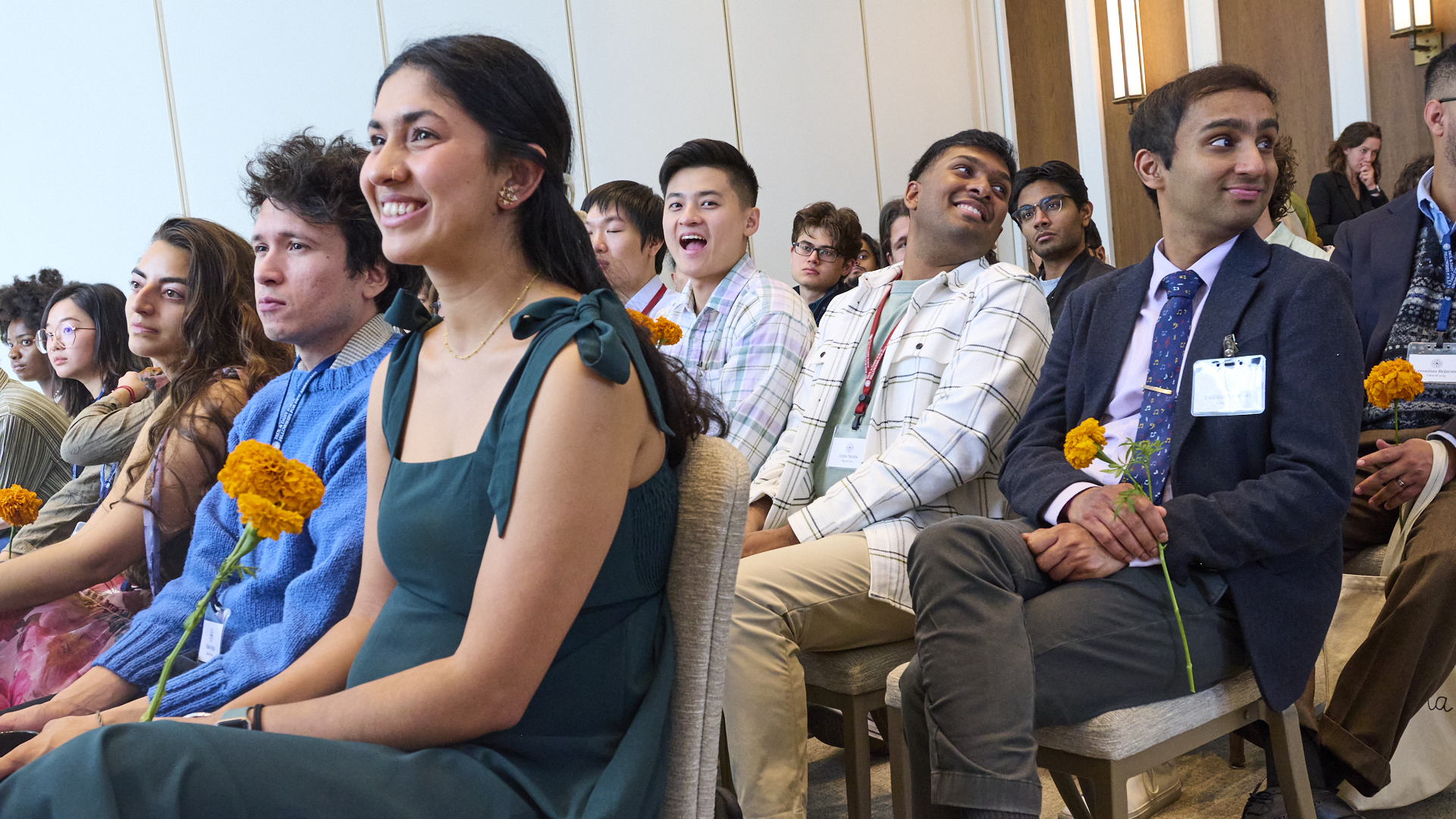 Read more: PD Soros Eligibility Guide for PhD Applicants
Read more: PD Soros Eligibility Guide for PhD Applicants- Applicant Information
PD Soros Eligibility Guide for PhD Applicants
-
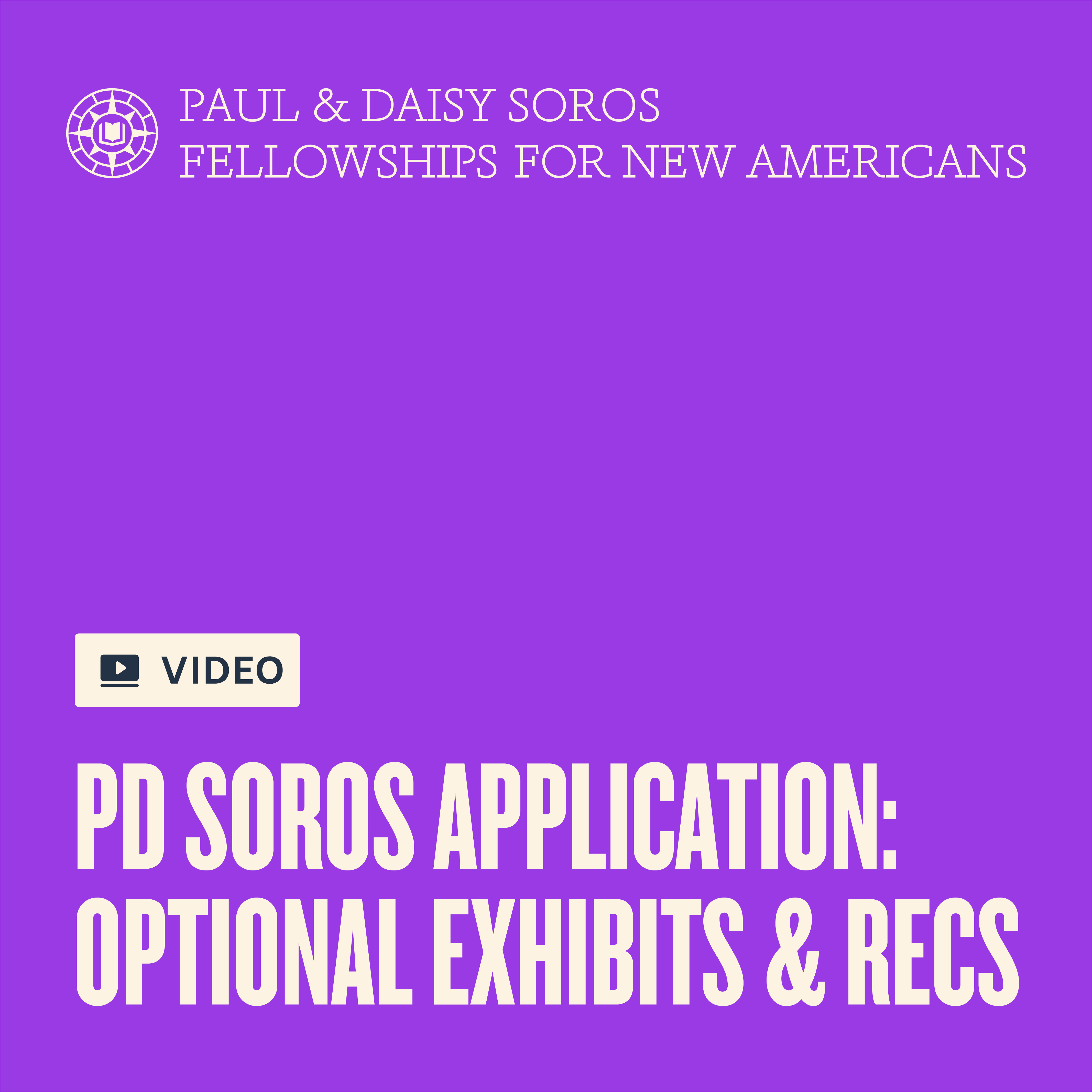 Read more: Watch: Optional Exhibits & Recommendations
Read more: Watch: Optional Exhibits & Recommendations- 2025 Information Sessions
Watch: Optional Exhibits & Recommendations
